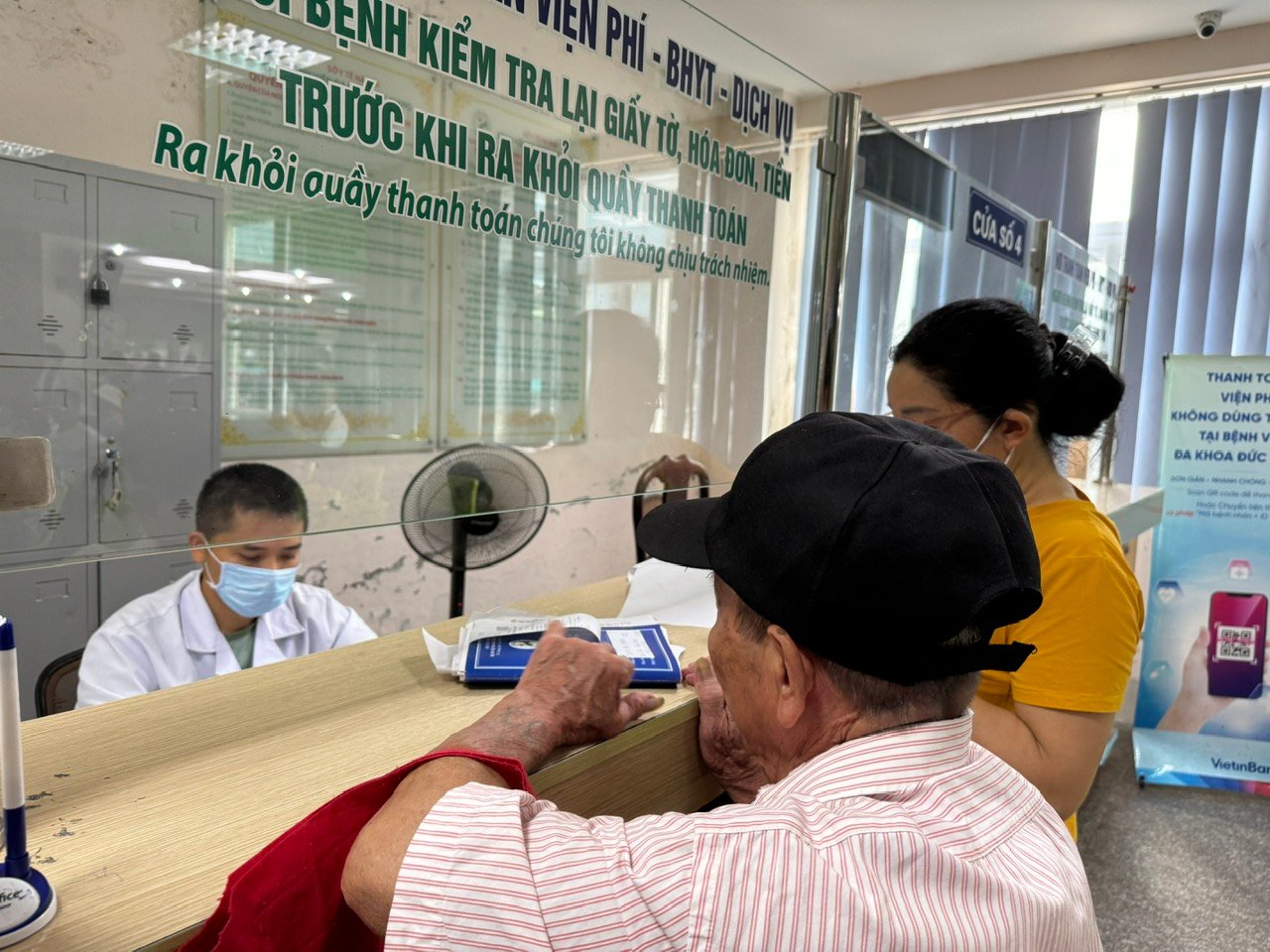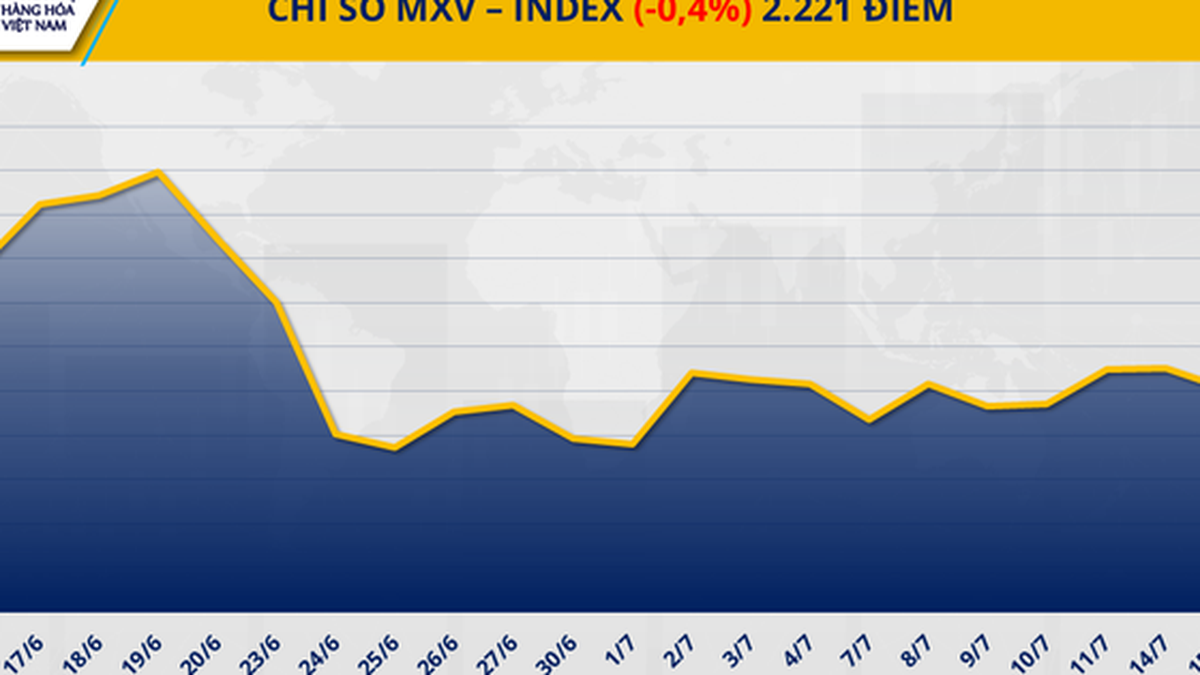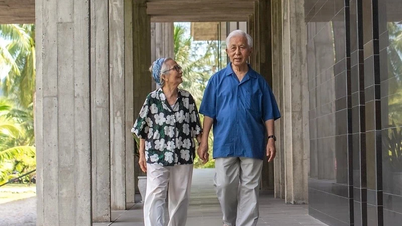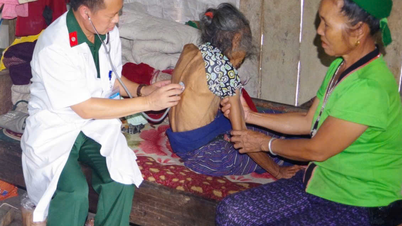
Patient support
Having had type 2 diabetes for 6 years, Ms. Nguyen Thi Tuyet (in Trung Van, Nam Tu Liem, Hanoi ) has been following treatment and maintaining a stable blood sugar level of 6.2-6.4 every time she goes to the hospital. Every month, when the time comes, she has to ask her child to take her to the hospital for check-ups and to get medicine.
“Every time I go to the doctor to get medicine, if I am quick, it takes me the whole morning to wait for the examination, test and results, if I am slow, it takes me the whole afternoon. The schedule for providing medicine under health insurance must follow the doctor's appointment, so patients must always make an appointment on time. For a long time, I have maintained stable blood sugar, so if I can get medicine every 2-3 months, it will be very convenient for us patients because it saves time traveling and waiting tiredly,” Ms. Tuyet shared.
Every time she goes for a routine check-up to get diabetes medication, Ms. Dinh Thi Bich (65 years old, in Nam Dinh ) has to go at 4am to the Central Endocrinology Hospital to get a number in time and finish the examination the same day.
“For patients from other provinces like us, it is quite difficult to go to a higher level hospital once a month for examination, not to mention there are many patients, we have to wait in line, sometimes it takes all day to see a doctor. If we are given long-term medication, we are very supportive. During the previous COVID-19 lockdown, we were given medication for 2-3 months at a time and the results were still good; I only went to see a doctor when there were unusual signs. If the disease indicators are controlled, I think patients should be given longer-term medication,” Ms. Dinh Thi Bich shared.
Most chronic patients support long-term medication to reduce the pressure of monthly check-ups. However, many patients also believe that long-term medication should only be applied to patients who have been treated stably and whose test results rarely change during regular check-ups. For many diseases where the results can change continuously, they should be monitored more closely and should not be applied to all chronic diseases.
Accordingly, the Ministry of Health is drafting a Circular on extending the maximum outpatient prescription period to 90 days for certain chronic diseases that have been treated stably; replacing the current regulation limiting outpatient prescriptions to no more than 30 days. This new circular is expected to be issued on July 1, replacing the current Circular 52/2017/TT-BYT.
Consider appropriate disease aspects
Regarding which diseases will be extended for drug delivery, Associate Professor, Dr. Pham Cam Phuong, Director of the Center for Nuclear Medicine and Oncology (Bach Mai Hospital) said: "Long-term drug delivery can be applied to patients undergoing maintenance treatment with stable results, for some diseases. This is not only more convenient for patients but also helps upper-level hospitals reduce the pressure of re-examination, especially in the context of the increasing number of cancer patients and chronic diseases."
At the Nuclear Medicine and Oncology Center, Bach Mai Hospital, there are currently about 500 patients using maintenance endocrine drugs, accounting for 10% of the total number of patients being treated.
However, Associate Professor, Dr. Pham Cam Phuong also emphasized: “Long-term medication is only suitable for cases where the disease is stable and has a good prognosis. Late-stage cancer patients who are being closely monitored for treatment response or are at risk of progression should not be given long-term medication.”
Accordingly, even if the patient is given long-term medication, the doctor still needs to give detailed instructions on any unusual signs that may occur between medication periods. In particular, when there are suspicious signs, the patient needs to return to the medical facility for timely examination to detect early recurrence or complications.
Final article: Patient safety comes first
Source: https://doanhnghiepvn.vn/doi-song/cap-thuoc-dai-ngay-giam-ap-luc-cho-nguoi-benh-bai-1-giam-ap-luc-cho-ca-nguoi-benh-va-benh-vien/20250621102647520


































































































Comment (0)